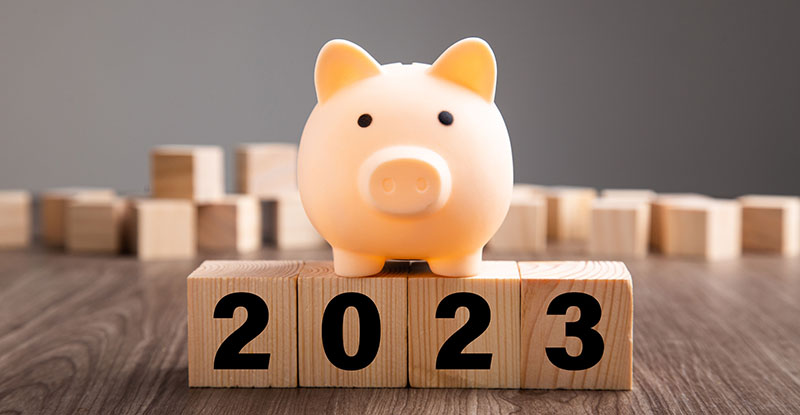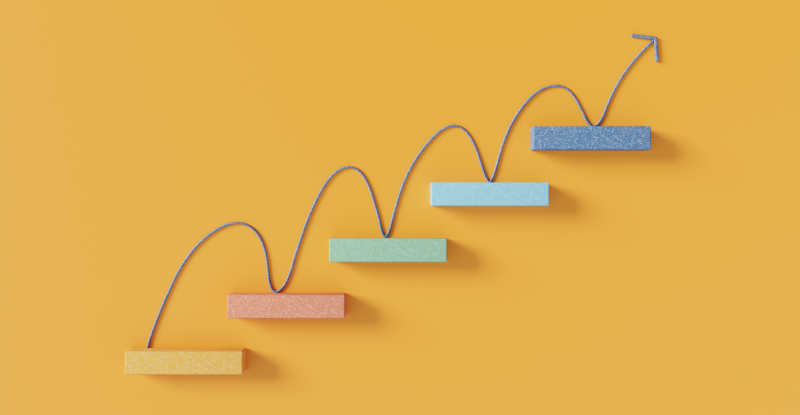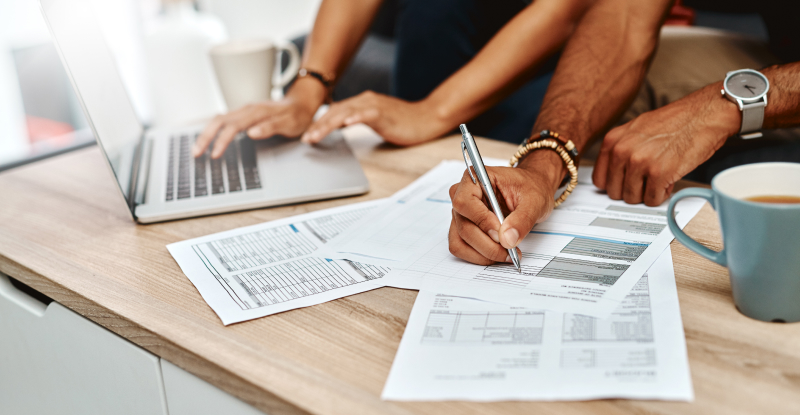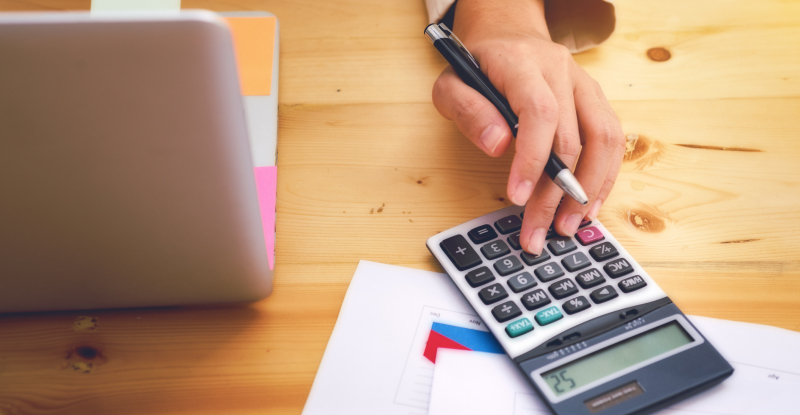
As part of Financial Literacy Month this past November, we asked people on Instagram to share with us what their burning questions are when it comes to managing their personal finances. We’ve gathered these questions and asked Nelson Soh, CPA, CA, co-founder of FSQ Consulting, to provide his expertise in our latest podcast episode. Part of our Coffee Chats with CPABC podcast series.
Below are some highlights from our conversation with him.
What are some spending tips as prices keep going up?
Nelson: Inflation is impacting everything from groceries to consumer products. Prices have been going up for clothes, technology, everything else. I’m in a fortunate situation where I'm able to still afford the things that I bought before the rise in inflation, but things have definitely been eye-opening.
There are some things that I definitely pass on when I go to the grocery store now. For example, last week I was at the grocery store and a head of lettuce was $5.99. And that's becoming pretty common, right? That’s why it’s very important to budget properly and not go into the grocery store hungry, so you're not thinking with your stomach, but you're with your grocery plan in mind.
Something that I like to do whenever I go grocery shopping, is to look at the flyers in advance. What's on sale this week? I like to use the stores’ mobile app to save coupons or points deals whenever I can. It may feel a bit thrifty but there’s an advantage to coupon cutting.
I also like to stock up when there are deals on things that can last longer. For example, if there's any frozen chicken on sale, I’ll buy and store it in the freezer. This will last me several weeks and I won’t have to keep buying it every week at the full retail price.
Another thing that many may not be aware of is that a lot of grocery stores price match. If you go to Superstore and you bring a Safeway flyer, they should usually be able to price match that for the exact same item.
What are some ways to prepare for a recession?
Nelson: Everyone's going to have a different opinion on this because personal finance is personal. It's called personal finance for that reason. But for me, the biggest thing is having an emergency fund or a rainy day fund, which is a sum of cash that's readily available in case anything happens. For example, if you need to take some time off work, or if you need to repair your home, or if your car needs to be fixed. This way you have cash ready so you're not scrambling when these expenses come up.
The general rule of thumb that works for most people is to have the equivalent of three months-worth of expenses set aside for an emergency fund. For example, if your monthly expenses add up to approximately $3,000, multiply that by three and that equates to a $9,000 emergency fund. Let's just say $10,000 to round up, and that should be doable for most people. But as we enter into a more uncertain market and time, it will be beneficial to put a little bit more into your emergency fund, if possible.
Ultimately, when it comes to saving and putting aside money for your emergency fund, it’s whatever you’re comfortable with. Whether that means three, six, or 12 months-worth of expenses, this is all a guideline. There's no hard set rule like, "You have to have six months-worth of expenses in an emergency fund or else you're financially unstable." Think of it as more of a goal. And if your goal is six months, but you only can save up four months, that's good too. It's better than zero.
What should people consider when investing during a recession?
Nelson: When it comes to investing during a recession, a big piece depends on your risk tolerance. Some people like to take more risk when prices are low, whereas some people prefer to hold back a little bit. One of my mentors once told me, "When it comes to investing, the only time you really ever lose money is when you sell at a loss."
If you're holding stocks, real estate, or whatever other assets right now, and you can afford to keep these investments, even though we may be in a down market, you’ll most likely win in the long run. When it comes to investing during a recession, my strategy is just to be consistent with it. If you're contributing $300 a month to your TFSA and RRSP, keep doing that. If your budget allows, keep it up.
Should we be investing in our TFSA and RRSP, if we are trying to save for a down payment for a home?
Nelson: I think investing in TFSA and RRSPs are more long-term investments. Some people like to try to time the market and buy low and sell high, but my strategy is more: Buy it and hold it forever because that's when the main gains happen. I think Warren Buffett may have said this before, “Time in the market always beats timing the market over the long run.” And I like to keep that strategy top of mind.
The best way to save for your home is to build your down payment as part of your budget. Include it as one of your savings buckets. For example, you could have a bucket for TFSA, one for RRSP, one for your emergency funds, and one for your down payment. But if you reach a point where you're trying to aggressively save for a home, then maybe you might pause your TFSA and RRSP contributions, and reallocate that money to the bucket for your down payment. Once you organize your savings this way, you'll be able to find more clarity in where your money is going.
I also encourage potential home buyers to keep an eye out for the new Tax-Free First Home Savings Account (FHSA) , expected to be launched by the federal government this year. Once it’s rolled out, it may be worthwhile to switch your down payment savings bucket to a FHSA bucket instead.
Do variable interest rates serve mortgage holders better than fixed mortgage rates in the long run?
Nelson: A lot of my clients ask this when we're working through real estate deals, and it's really hard to say. In 2022, we saw a string of rate increases to combat inflation, but the Bank of Canada has indicated that their goal is to bring inflation back down to the ballpark of 2% by the end of 2024. With that in mind, having a long-term fixed rate at the current interest rate might not be the most beneficial for homeowners or home buyers.
For example, if you're committing to a five-year fixed at, say 6.5% or 6%, you might be burned-out come year three, four, and five. But does it serve you to have a variable interest rate right now? That’s hard to say because variable rates are high at the moment.
What many have been doing recently is they've been locking in a short-term fixed rate for one to two years at 5.5 or 6%. While that’s still much higher than what we’re used to, at least you have some certainty in the next couple of years of what your payments are will be, while still having the flexibility to shift after that, if there’s a lower rate available.
Visit our personal finance section for more tax-related tips.
Vivian Tse is director, communications, at CPABC.



